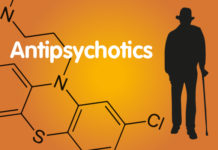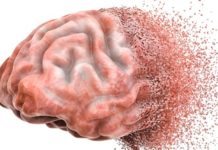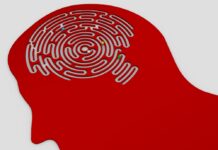More Evidence That Antipsychotics Shrink the Brain
European researchers who reviewed 43 imaging studies of first-episode psychosis found evidence that antipsychotics cause a decrease in gray matter volumes in the brain....
Outcome Reporting Bias in Antipsychotic Medication Trials
A new study in the journal Translational Psychiatry, an influential journal in biological psychiatry published by Nature, challenges the state of the research on antipsychotic drugs.
Identifying Psychiatric Drugs Leading to Emergency Room Visits
More than ten-percent of adults in the United States are currently prescribed at least one psychiatric medication but there is currently a lack of research on the prevalence of adverse drug events (ADEs) associated with these prescriptions outside of clinical trials.
The BBC, Harrow, and a Public Left in the Dark
The recent report by the BBC on medication-free treatment in Norway, when viewed in conjunction with the media silence on Martin Harrow's latest publication, reveals why the public remains misinformed about the long-term effects of antipsychotics.
Withdrawal from Antipsychotics
A review of the scientific literature related to the withdrawal of antipsychotics: animal studies, withdrawal symptoms, tapering success rates, and consumer accounts of discontinuation.
The Case Against Antipsychotics
This review of the scientific literature, stretching across six decades, makes the case that antipsychotics, over the long-term, do more harm than good. The drugs lower recovery rates and worsen functional outcomes over longer periods of time.
Antipsychotic Medications Are Causing Obsessive Compulsive Disorders
Common second-generation antipsychotic medications are causing symptoms of obsessive-compulsive disorder to emerge in many people who previously only had schizophrenia symptoms, according to a...
Very Slow Taper Best for Antipsychotic Discontinuation
An article in JAMA Psychiatry advises very slow tapering for best results when discontinuing antipsychotic drugs.
Antipsychotics Often Prescribed Without Informed Consent
New research reveals that patients are often not given fully informed consent before being prescribed antipsychotics.
Antipsychotics for Depression: Added Risk for Little Benefit
A review of research on antipsychotic medications as an adjunctive treatment for depression published this week in PLoS Medicine finds that the widespread practice...
Wunderink: Antipsychotics Can Be Tapered Safely Without Increasing Relapse Risk
Tapering antipsychotics slowly and with supported decision-making may improve care for patients with psychosis.
Anticholinergic Psychiatric Drugs Linked to a 50% Increase in Dementia
People who take anticholinergic drugs, such as antidepressants and antipsychotics, are at a 50% higher risk of dementia.
45% of Children and Adolescent Inpatients Prescribed Antipsychotics
In a rare long-term study of antipsychotics used in children and adolescent inpatients, the Institute of Living in Hartford, CT followed 3,851 consecutive admissions...
FDA Warns About New Impulse-Control Problems Associated With Abilify
Yesterday, the US Food and Drug Administration (FDA) released a warning that the antipsychotic drug aripiprazole or Abilify is associated with compulsive and uncontrollable...
Antipsychotic Adherence Research Overlooks Key Information
Researchers argue for a shift away from a focus on antipsychotic adherence toward understanding service users’ diverse patterns of use.
Adding Antipsychotics Worsens Outcomes in Psychotic Depression
Outcomes were worse for all, with young people on combination therapy twice as likely to experience rehospitalization or death by suicide than those on antidepressants alone.
FDA Defends Decision to Approve Digital Aripiprazole
Members of the U.S. Food and Drug Administration’s Psychiatry Products division go on the defensive in a new article, responding to concerns about the agency’s approval of digital aripiprazole.
How Exercise Can Help With First Episode Psychosis
New study examines the experiences of people utilizing an exercise program following a first-episode psychosis.
The Rise of the Digital Asylum
The digital pill Abilify MyCite, which is now being introduced into the market, foretells of a future where such technology is used to monitor the behavior, location and "medication compliance" of a person 24 hours a day.
Case Studies Reveal Patient Empowerment Through Tapering Antipsychotics
A new study shows how different patients respond to tapering antipsychotic medication under expert guidance, highlighting personal empowerment and the complexities of withdrawal.
Discontinuation of Antipsychotics Improves Cognitive Functioning
A study, recently published in Psychological Medicine, examined the cognitive functioning of individuals with schizophrenia who discontinued antipsychotics, and those who maintained their antipsychotic...
Antipsychotics Worsen Cognitive Functioning in First-Episode Psychosis
Withholding antipsychotics may be beneficial for memory, the researchers write.
Olanzapine Can Cause Serious Skin Reaction, FDA Warns
The US FDA has issued a new warning for the atypical antipsychotic Olanzapine, also known by the brand names Zyprexa and Symbyax. The agency...
Drug Treatment for Borderline Personality Disorder Not Supported By Evidence
New research published in the August issue of Psychiatric Annals evaluates the results of randomized control trials on the use of various psychotropic drugs for patients diagnosed with borderline personality disorder (BPD). Despite the “American Psychiatric Association’s practice guidelines endorsement of SSRIs as first-line therapies for BPD,” the results of the meta-analysis reveal that pharmacotherapy in BPD is “not supported by the current literature,” and “should be avoided whenever possible.”
Study Suggests Long-Term Antipsychotic Use May Result in Poorer Cognitive Functioning
Association found between long-term antipsychotic use and poorer performance on cognitive tasks in adults diagnosed with ‘schizophrenia.’

























